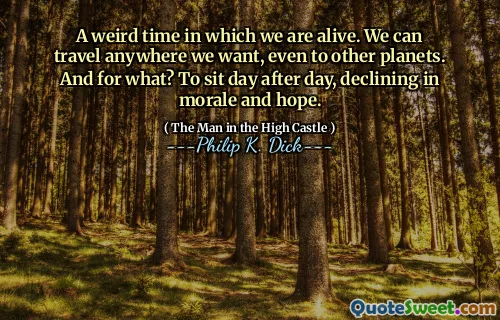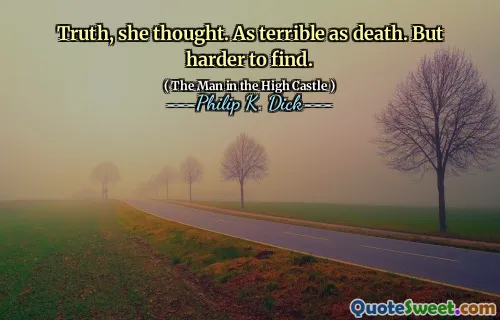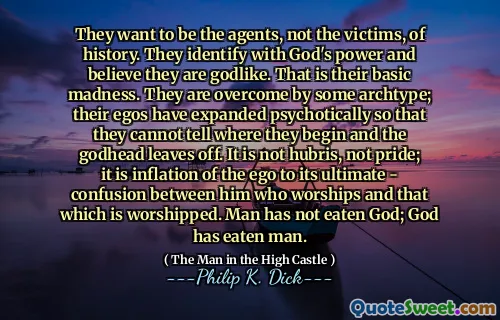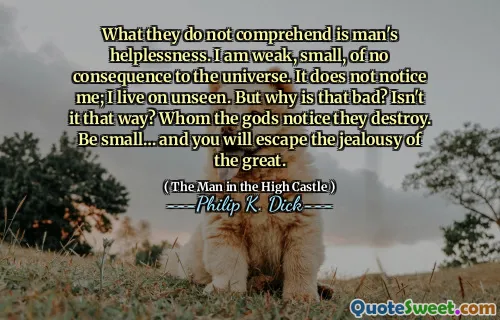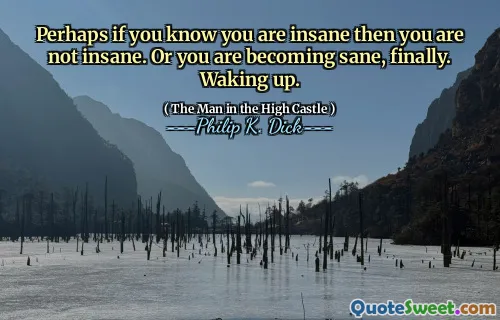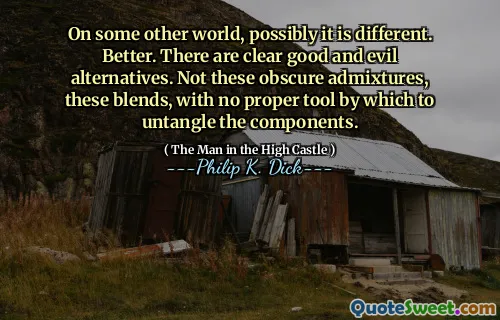
We cannot enter the monstrous schizophrenic morass of Nazi internecine intrigue; our minds cannot adapt.
In Philip K. Dick's novel "The Man in the High Castle," the intricate web of Nazi politics is portrayed as chaotic and incomprehensible, likening it to a labyrinth of schizophrenia. The characters navigate a world steeped in conflicting ideologies and moral dilemmas arising from the totalitarian regime. The narrative hints that understanding such a twisted reality is beyond human capability, suggesting a disconnect between the individual and oppressive systems of power.
This profound statement reflects the author's struggle to capture the enormity of the historical trauma caused by Nazi rule. The complexity of internal conflicts and betrayals complicates the characters' lives, leaving them entangled in a sense of helplessness. Overall, the book critiques how oppressive regimes distort human experience and thought, leaving individuals lost amid the chaos of ideology and survival.
